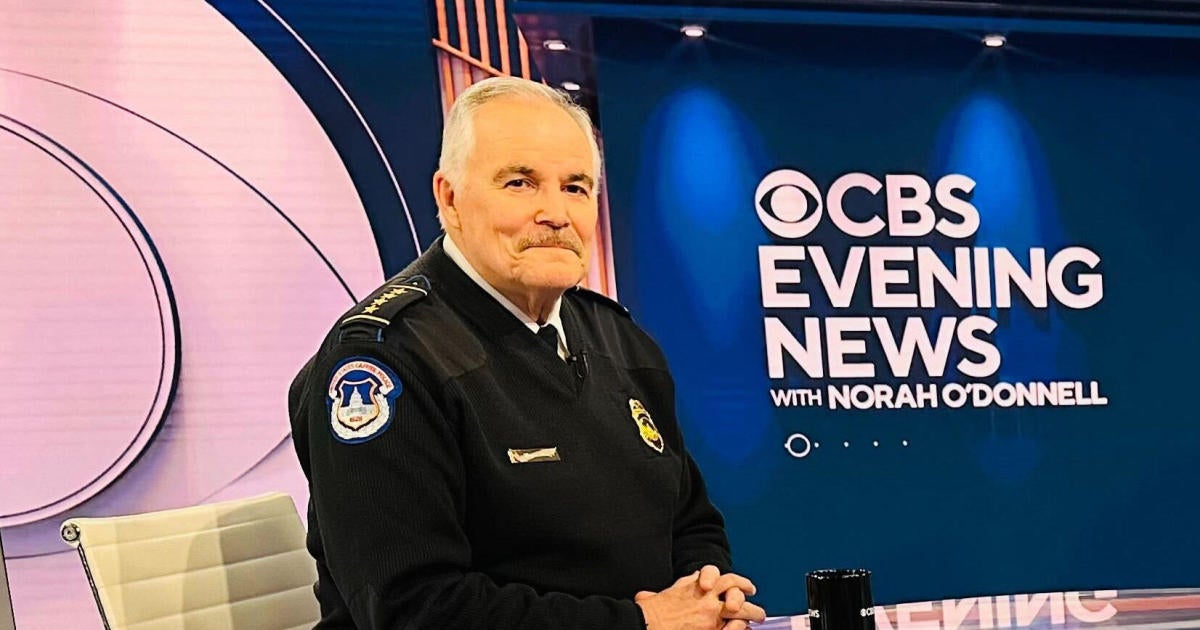Trump's Capitol Riot Pardons Spark Outrage: Chief Manger's Concerns and the Fallout
President Trump's sweeping pardons for those involved in the January 6th Capitol riot have ignited a firestorm of controversy, with U.S. Capitol Police Chief Thomas Manger expressing deep concern over the impact on officer morale and the message it sends regarding accountability for violence against law enforcement.
The Chief's Outrage: A Betrayal of Law Enforcement?
Chief Manger's statement to CBS News is laced with anger and disappointment, condemning Trump's actions as prioritizing politics over justice. He powerfully asserts that the pardons "send the message that politics is more important than policing." This isn't just a matter of legal technicalities; it's a deeply personal blow to the officers who risked their lives that day. The chief's statement that he worries about the impact this decision will have on the willingness of future police officers to protect our nation's Capitol shows the far reaching consequence of these pardons. Many of his officers openly express anger, which can be interpreted as feeling betrayed by a system that failed to recognize the severity of their sacrifices. Their jobs have become demonstrably more dangerous and politically fraught.
Questioning the Value of Sacrifice
The sheer number of officers assaulted during the riot—over 140—highlights the gravity of the situation. Many faced serious injuries and continue to grapple with the physical and psychological effects. The pardons cast doubt on whether the officers who put themselves in harm's way will be adequately supported and protected, sending ripples of concern through law enforcement agencies. Such decisions create an environment of apprehension, discouraging proactive policing. By pardoning criminals, who are guilty of violently assaulting Capitol Police Officers, the message sent is: these actions were permissible, and acceptable.
Beyond the Capitol: A Nationwide Impact
This issue transcends the walls of the Capitol. The ramifications of Trump's decision extend far beyond Washington, D.C., impacting police officers across the country. The act of pardoning those who assaulted police officers undermines law enforcement and emboldens those who would attack officers.
The Ripple Effect Across Law Enforcement
The impact extends to other federal agencies too. Chief Manger also criticized President Biden's commutation of Leonard Peltier's life sentence, arguing that it sends a disheartening message to the FBI and other law enforcement agencies. The ongoing effect of such decisions creates deep uncertainty regarding the respect of law and its enforcement across agencies nationwide. Officers may fear making necessary arrests, potentially hindering their ability to protect the community.
The Moral of the Story: Accountability Matters
The pardons are more than just legal actions; they are statements about our values. They reveal a disturbing trend: a lack of recognition for those dedicated officers, and their willingness to put themselves in harm's way. If there is no legal and public consequence for attacks against those that have sworn an oath to protect our communities, officers across agencies would certainly pause and question the consequences.
What the Pardons Really Mean
Chief Manger correctly points out that the ramifications run deeper than mere political posturing. The pardons create a dangerous precedent, suggesting that violence against law enforcement may go unpunished under certain political conditions. Such disregard jeopardizes the well-being of police officers, eroding public trust in the justice system and discouraging future officers from safeguarding society. A profound erosion of the relationship between citizens and law enforcement is clearly a direct result of these decisions, both short and long-term.
Take Away Points
- Trump's pardons for Capitol riot participants have ignited widespread anger and concern among law enforcement.
- Chief Manger's statements highlight the deep impact these pardons have on officer morale and willingness to engage in potentially dangerous situations.
- The implications reach far beyond the Capitol, impacting law enforcement nationwide and eroding trust in the justice system.
- Accountability for violent acts against law enforcement is crucial for maintaining public safety and trust.









